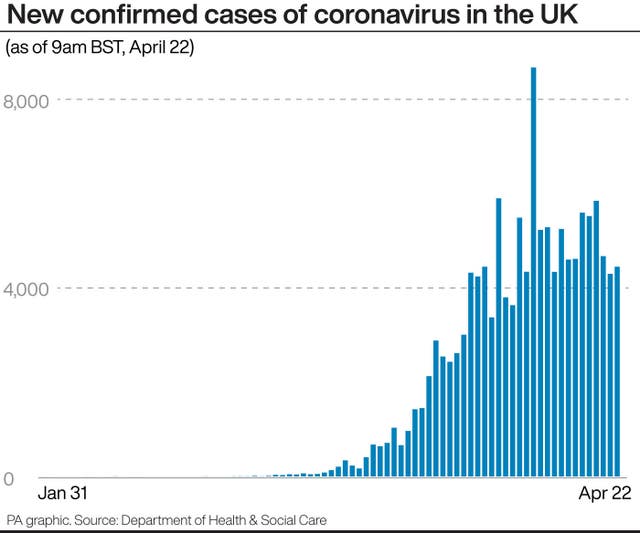
Identifying who has had coronavirus without symptoms is necessary to work out how to lift lockdown restrictions, an expert has said.
Professor Jimmy Whitworth said the data would enable experts to know who had potentially developed an immunity to Covid-19.
But he said the only way to really determine this was to test people to see if they had been asymptomatic.
Asymptomatic means the person had the virus, but displayed none of the symptoms.
However, it does not mean they cannot spread Covid-19. And so far very little is known on what proportion of people are asymptomatic.

Prof Whitworth, professor of international public health at the London School of Hygiene and Tropical Medicine, said it is thought the proportion of transmission that occurs from people who are asymptomatic seems to be less than 50% – around 30% or 40%.
Asked why it was important to know how much of the population is asymptomatic, he said: “ It is important when we’re trying to work out how, how we can lift restrictions.
“If you have a situation where just 5% of the population have been infected, then that means 95% is still vulnerable, and at risk of getting infected.
“And you have got to be pretty careful about lifting any restrictions.
“If it turns out 50% of people have already been infected, then that’s much better in terms of being able to lift the restrictions because you’re most of the way towards developing this famous herd immunity.”
The Government is carrying out hundreds of highly-accurate antibody tests – called serology tests – a day, at Porton Down, the military’s science laboratory.
Prof Whitworth said if the aim was to work out how much of the population had been infected, lab-based antibody tests would be enough – rather than home tests – because a slight delay does not matter.
He continued: “The trouble is, if you’re trying to tell individuals whether they’ve been infected, and therefore we assume they’re immune – and I’m not sure that’s necessarily a given – then, you want a test that’s going to be reliable and quick.
“And the trouble is we don’t have that. We have quick tests, and we have reliable tests.
“We don’t have ones that tick both boxes at the moment.”
Asked whether such a test was necessary at the moment, the professor said he did not think so.
He explained: “Well I think if we’re thinking about moving out of lockdown, there is talk about individuals needing to know what their status is – whether they’ve been infected or not.
“I don’t think that’s necessarily a good idea because it might give people a false sense of security that therefore they’re immune, and we don’t know either that that is the case, or even if they are how long that immunity lasts.
“So, I would think that relying on the tests we know work to get an idea in the population, about how much infection there’s been is the better approach at this stage.”


Comments: Our rules
We want our comments to be a lively and valuable part of our community - a place where readers can debate and engage with the most important local issues. The ability to comment on our stories is a privilege, not a right, however, and that privilege may be withdrawn if it is abused or misused.
Please report any comments that break our rules.
Read the rules hereLast Updated:
Report this comment Cancel